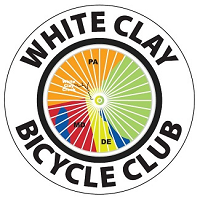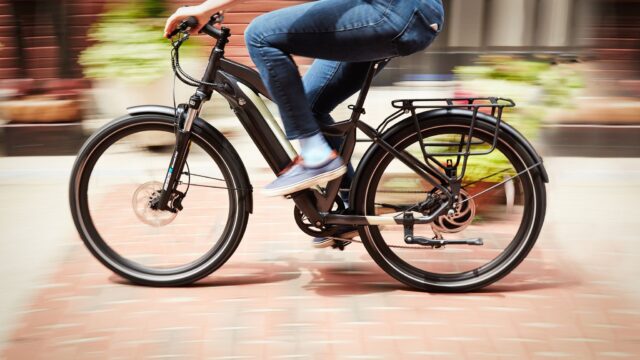As eBikes become the “new bike” for many, new guidelines and rules have been put into place by lawmakers and insurance companies. Recreational bicycle clubs, such as White Clay are finding it necessary to follow those guidelines and rules for the protection of our members and ride participants.
There are different classifications of eBikes; Class I, Class II, and Class III. If you have purchased an eBike you should know what class of eBike you purchased and you can jump ahead to the Guidelines and Rules section, but for those who do not know, keep reading.
Definitions
Class I eBikes use battery and electric motor to provide assistance at up to 20 mph when a rider is pedaling. Class I eBikes can go faster than 20 mph when going downhill, but at that point the electric motor will stop providing assistance once 20 mph is attained.
Class II eBikes work two ways. First, the electric motor provides assistance at up to 20 MPH when the rider is pedaling, just like a Class I eBike. Second, Class II eBikes include a throttle, which can go up to 20 MPH without the rider pedaling. Class II eBikes cannot be used in some regions. Off-road trail riding locations, like mountain bike trails, often permit only Class I eBikes, whiles Class II eBikes with throttles cannot be used.
Class III eBikes provide pedal assist at up to 28 MPH. These more powerful electric bicycles are capable of higher speeds than their Class I and Class II peers. Some Class III eBikes have a throttle, and others do not. When Class III eBikes include a throttle, they are usually limited to 20 MPH maximum speed on throttle (even though the bike can go faster when the rider is pedaling). Class III eBikes are primarily intended for higher-speed riding on streets and roads and are commonly disallowed on bicycle paths, trails, bikeways, horse trails, and hiking trails
Guidelines and Rules
Although the state of Delaware has regulations in place which must be followed by eBike riders, we will be focusing on the regulations put forth by our insurance carrier which are pertinent to the club and its members.
Our insurance carrier will cover Class I and some Class III eBikes, but has excluded coverage of all Class II eBikes. eBikes with a throttle that eliminate the need for pedaling (Class II and some Class III) are prohibited from all club-led rides and club organized events such as the Icicle, Doublecross, Shorefire, Savage, annual picnic, etc.
In summary…
Class I and Class III eBikes with throttle assist that require the rider to pedal ARE permitted on club-led rides and/or club hosted events.
Class II and Class III eBikes that eliminate the need for a rider to pedal are NOT permitted on club-led rides and/or club hosted events.
State Regulations
Within Delaware law, Title 21, Motor Vehicles, provides this definition for a Bicycle: “Bicycle” shall include that certain class of vehicles which are exclusively human-powered by means of foot pedals, which the driver normally rides astride, which have not in excess of 3 wheels and which may be commonly known as unicycles, bicycles and tricycles. The term “bicycle” also includes a 2- or 3-wheeled vehicle with fully operable pedals and an electric motor of less than 750 watts (1 horsepower), whose maximum speed on a paved level surface, when powered solely by such motor while ridden by an operator who weighs 170 pounds, is less than 20 miles per hour.
Delaware State has proposed legislation to define/redefine eBikes that is currently within the House Public Safety & Homeland Security (as of 3/12/20) and can be viewed by selecting this link. **
Since eBikes are new, there is a good chance that how legislators and insurance companies view eBikes may be further refined over time. As those regulations change, White Clay will follow suit and make changes to our policies.
Ride on, safely.
**An update – the house bill has left committee, moved to the senate, and is awaiting a vote. Details can be found here – https://legis.delaware.gov/BillDetail?LegislationId=48201

